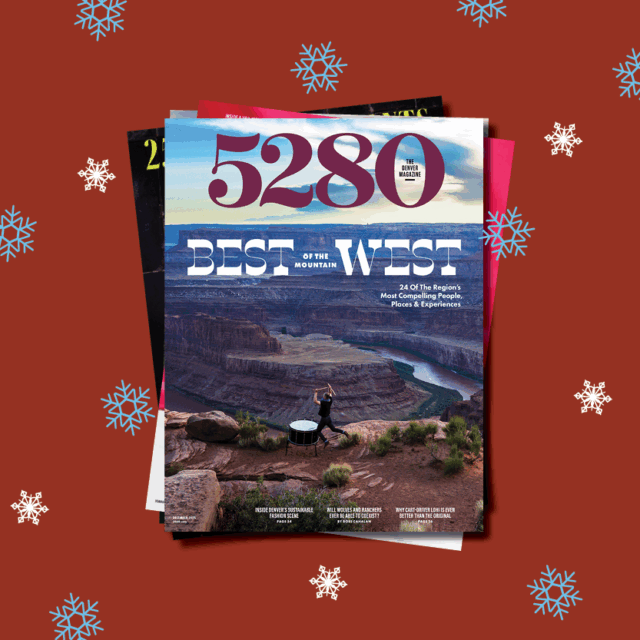The Local newsletter is your free, daily guide to life in Colorado. For locals, by locals.
Editor’s note: Responses have been edited for length and clarity.
You know him as…Former U.S. representative for the Sixth Congressional District, former Colorado state treasurer, former Colorado secretary of state, former state senator, former state representative, veteran (U.S. Army, U.S. Army Reserve, U.S. Marine Corps, and U.S. Marine Corps Reserve)

5280: Why do you want to be mayor?
Mike Coffman: I want to be mayor to help shape Aurora’s future. A future that balances growth with more open space, more parks, more trails for outdoor recreation. A future that makes Aurora one of the safest cities in America. And a future that solves our transportation challenges.
If elected, what’s the first thing you’ll do?
I want to hear from the Aurora Police Department in terms of what they’re doing in northwest Aurora to protect the people there. Because Aurora actually has a crime rate—in terms of violent crimes—that’s increasing. But it is concentrated in a relatively small area, the older area, the poor area of the city, and I think that area is neglected.
What sets you apart from other candidates?
Experience, I think, in part. I’ve called Aurora home the last 55 years. I grew up in Aurora, I went to school in Aurora, I was a small business owner in Aurora for 17 years. I represented all our parts of Aurora in the state House, the state Senate, and in the United States House of Representatives. I have a leadership background in the military, in business, and in government, having been the executive director of two different parts of state government. So, I can bring that experience into Aurora to help shape its future.
What’s something that voters might not know about you?
I think my business background. I think people often just think that I am a military guy and that I’ve been in politics forever and they don’t know that I was a business owner, I started a business from scratch….I think that’s very important—for a mayor to understand small business—because I think that small business is the engine that drives economic development.
Aurora is one of the state’s most diverse metros—and it is also home to a federal immigration facility that has been the focus of recent protests. How has that impacted the community?
I think that the city could have a leadership role in trying to promote immigration reform, but ultimately it’s got to be to the Congress to do that. And I fault both sides for not getting it done. I think the attention that everybody’s focused on, like [the] detention center, is just a symptom of a broken immigration system. But one thing I want to be involved in directly with these communities when it comes to the immigration issue is helping people individually until immigration reform is done.
Lightning round: What are your quick thoughts…on growth.
It is the 54th largest city in America right now. It has a landmass larger than Denver. And 38 percent of it is undeveloped. But the question is how do we develop? And I want to be much more innovative. I think Aurora gets a bad rap, in part, perhaps we’ve earned it. That it’s residential to shopping center to residential to shopping center. And what can we do that’s different? I want to grow with an identity other than being a bedroom community of Denver.
…on energy, oil, and gas.
What I think needs to happen is we have an oil and gas advisory group, and I think it should have a formal role….Aurora’s not Weld County. What I don’t want to see in Aurora, besides concerns about public health—this is a heavily regulated industry for a reason—is somebody barbecuing in their backyard, and there is an oil rig as the backdrop behind them. Or there is an elementary school with an oil rig as the backdrop behind it. That’s great for Weld County, but that’s not the image we want in Aurora. We are not a natural resource city.
…on affordable housing.
You know, affordable housing is a big concern. We have some programs in place, [but] I don’t think that they are helping enough people….Can we look at tiny homes? I know it’s controversial, but can we look at it? Can we look at micro apartments? I think when you think about the Colfax corridor, that there is really almost no residential on the Colfax corridor in the Aurora portion. Can we do micro housing and co-working spaces and things like that to attract young people in a more affordable way?








